Impact Sprints can be delivered over an intense two week ‘sprint’ or spread over a longer period. They can be delivered in person, fully remotely or a hybrid of the two.
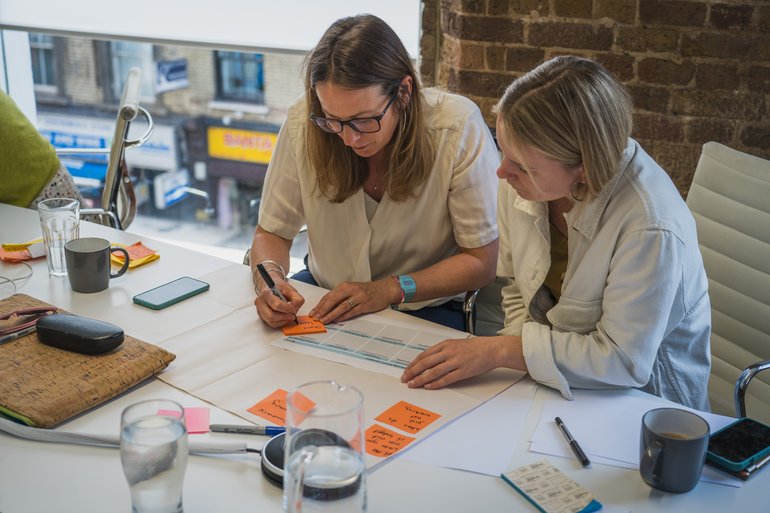
Consider who needs to be involved and how you might engage them
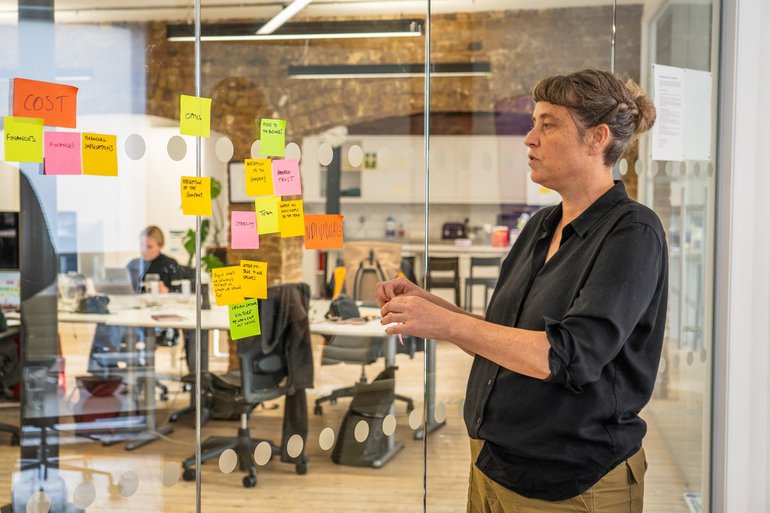
Explore your programme objectives and the change you aim to deliver - your 'theory of change'. Impact-mapping session to help clarify potential outcomes and what is important to end users.

Bring in project teams to evaluate the potential impact of their work, particularly in relation to other teams’ activities.
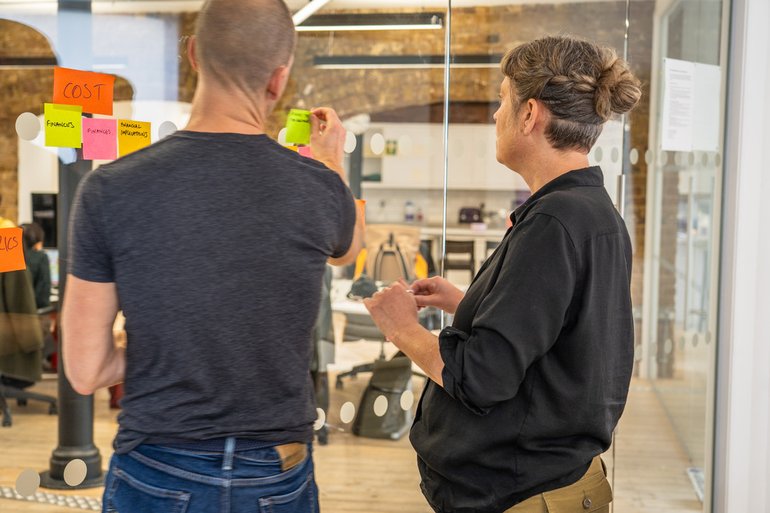
Map out the initiatives and how they fit within the bigger picture. Assess how current outcomes and performance are monitored and how measuring impact will be done.
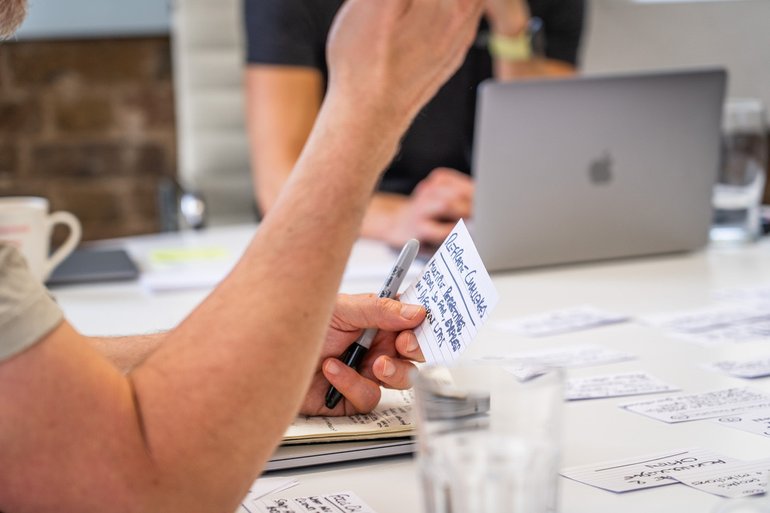
Gather feedback from stakeholders and refine your map
Big-picture thinkers who are managing a programme of innovation or transformation projects with lots of moving parts, where outcomes are unclear and impact is hard to assess.
Desired impacts can be different for each type of organisation. A purely for-profit entity might prioritise the financial impact of an intervention, while a charity may focus exclusively on social impacts that improve the lives of their service users and their environment. “Impact” is often interpreted as exclusively meaning “social impact”, but this is not always the case.
Pete Parfitt, Head of Digital | Buckinghamshire Council
“The tools, templates and practices that Unboxed built for us along with the confidence that they engendered within the team have meant that after they finished their engagement our team were able to continue their great work. While we miss their support, as any true partner does, they were able to make our team believe in themselves, carrying on the User Centred Design principles Unboxed started.”
Impact sprints can be used to solve a range of problems: from seeking clarity on your own impact and the effectiveness of your current projects or programme, communicating your impact to internal and external stakeholders to attracting new sources of funding.
A set of impact maps that are shared amongst all stakeholders and project groups, creating a common understanding of how impact will be measured and evaluated.
Design sprints are described by Google Ventures, where they originated, as “a five-day process for answering critical business questions through design, prototyping, and testing ideas with customers… a ‘greatest hits’ of business strategy, innovation, behaviour science, design thinking, and more”.
An impact sprint is the evolution of the design sprint which targets actions and activities on the impact the team wants to achieve, after first establishing how to measure these and map them to their actions.
Our Impact Sprint costs a flat £30,000 and provides you with the outcome as listed in above.
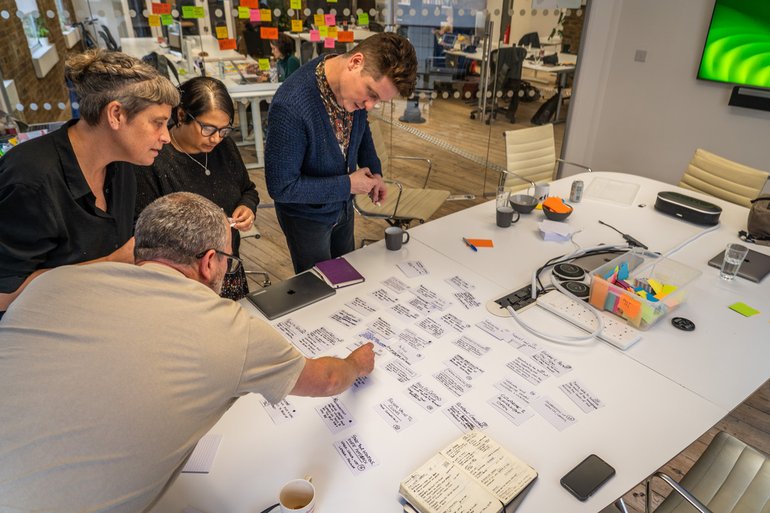
With nearly 20 years of experience of placing end users at the heart of design and development, our skilled team can help you identify and prioritise measurable impact through a combination of qualitative and quantitative research, strategic alignment, data analysis, facilitation and recommendations.
Our emphasis on learning by doing enables us to pass transferable skills to your team and ensure a commitment to continuous improvement after the impact sprint has ended.